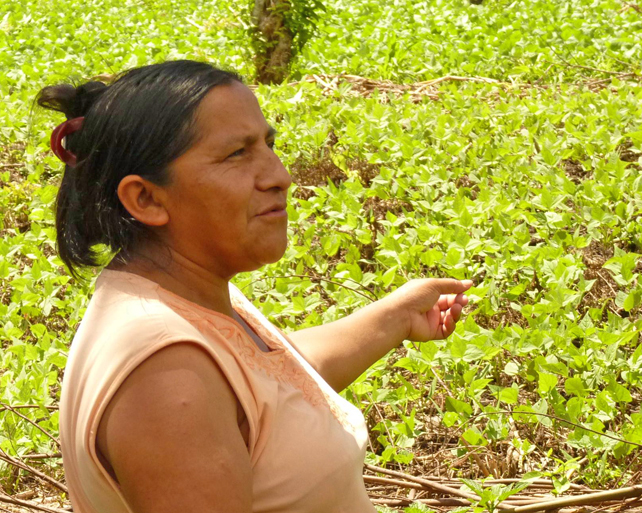

Fighting child malnutrition in El Salvador

With pride and hope in her eyes, Eriberta shows off her plot of land, half a hectare neatly planted with corn and beans. "Before, we planted only six sections of our plot, now, with the help they have given us, we sowed ten," she says excitedly. The fruits of her efforts will feed the eight people in her household for a year.
Eriberta’s family is one of 582 that are benefitting from an MDG-F-funded United Nations programme to improve food production in El Salvador’s eastern department of Morazán, which has the highest rates of malnutrition in the country.
One of the hardest hit areas during the Salvadoran armed conflict, Morazán has alarming levels of food insecurity. Forty-five percent of Eriberta’s municipality of Cacaopera lives below the poverty level, three times the national average. In Guatajiagua, another municipality where the joint UN programme is providing agricultural supplies and technical assistance, more than 60% of people live in extreme poverty.
In addition to farming, Eriberta’s family makes hammocks and uses the proceeds to buy fertilizer. But with fertilizer prices rising, she says the support the family gets from the MDG-F-supported programme is crucial not only to meet their food needs, but also to help them invest in their future.
"If we are careful, we can use this to build our strength. But if we don’t take care, then we’ll end up as though we had not been given anything," says Eriberta, who hopes to double her grain production from 2010.
The joint programme, “Protecting children: towards a coordinated food security and nutritional programme for El Salvador” is part of the MDG-F’s efforts to help El Salvador achieve the Millennium Development Goals of reducing poverty and inequality, especially among the most marginalized communities. The programme also promotes home and school gardens as a way to diversify agricultural production and increase incomes.
The programme, a collaboration between the government and four UN agencies (UNICEF, WHO, UNDP and WFP), was developed following an analysis of how to improve the amount and diversity of food produced in the region. The study recommended an increase in cereal production, followed by small-scale diversification focused on high-yield vegetables, and, ultimately, the development of complementary projects such as non-agricultural activities.
The joint programe also supports the National Council of Food and Nutritional Security in developing and implementing a national policy to combat malnutrition, establishing a monitoring system and promoting breastfeeding.
Click here to read abou the MDG-F's work in El Salvador.
Click here to read other success stories from the MDG-F's work to fight poverty and improve livelihoods around the world.